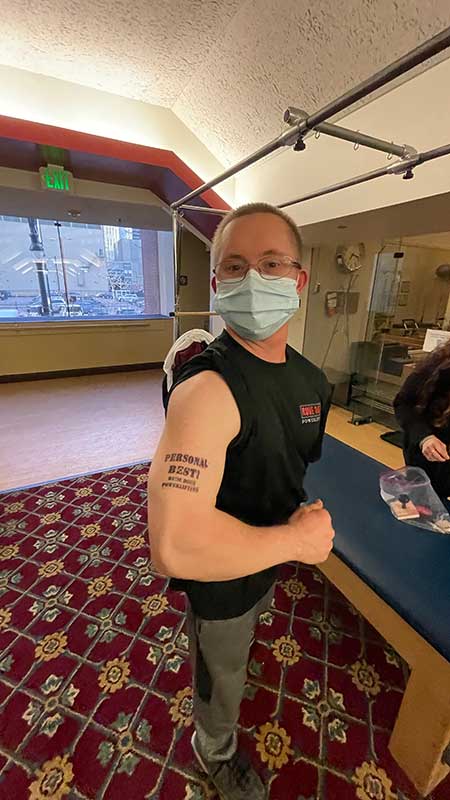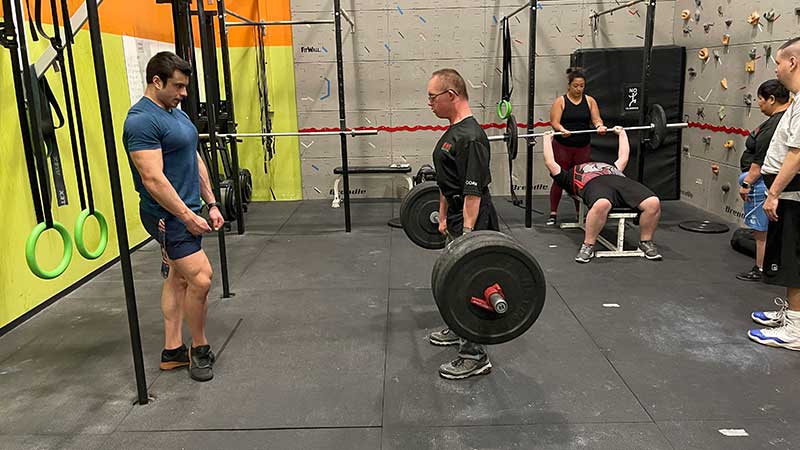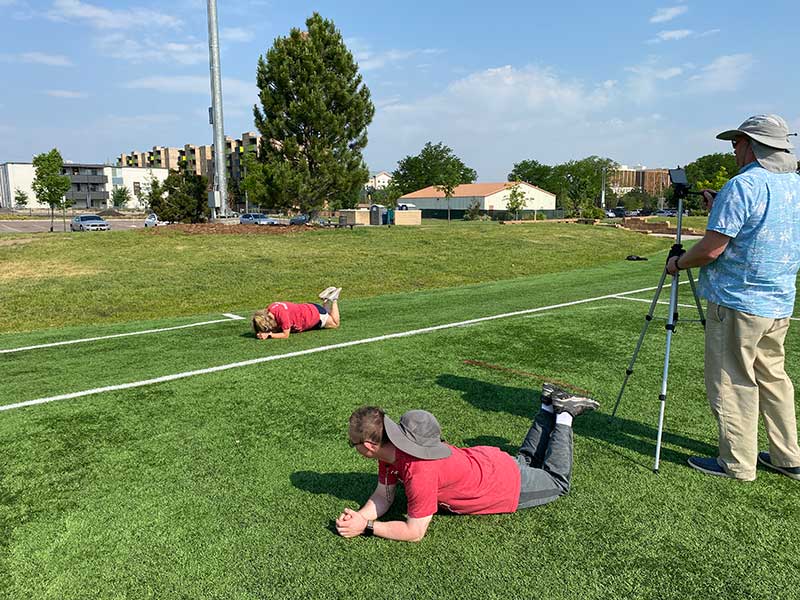Inclusive Health with James Kropp
Written by: James Kropp
My name is James Kropp, and I am a Special Olympics Colorado athlete. As a person with an intellectual disability (ID) and a person who believes fitness is important for everyone, inclusive health is very important to me.
As an athlete who is also a Certified Personal Trainer, I have been fortunate to be able to work with Special Olympics Colorado in a variety of ways. I have helped them create fitness videos that are used by other Special Olympic athletes to help them lead healthier lives, I helped introduce the Fit 5 program to athletes, and I have received training to become a Health Messenger for Special Olympics. These are a few of the great things I have done with Special Olympics Colorado lately, but there is also one more, that really means a lot to me: being an ambassador for inclusive health.
You may have heard the words “Inclusive Health” before and possibly know what it means, but if not, let me introduce you to inclusive health and why it means so much to me. Inclusive Health means people with ID having access to the same health care that people without disabilities receive. While my peers and I may be better off than we were a few decades ago, people with ID still face barriers when seeking medical treatment. I have personally seen and experienced doctors who look at me as a disability and not as a person. Let me share some personal examples with you to better help you understand why Inclusive Health is so important.

My personal experience came with my first doctor’s visit in Colorado. My parents will often attend my medical appointments with me. When my dad and I met with my doctor she spent most of her time talking to my dad, not to me. It got to the point that my dad excused himself from the room so that the doctor would be forced to talk to me. Otherwise, she would have continued to overlook me and speak only to my dad.

Unfortunately, these types of incidents don’t just happen to my dad and me. In a November 2021 article, the World Health Organization (WHO) said people with disabilities are very likely to report they have faced stigmas and discrimination when seeking healthcare. People tend to look at a person with a disability and see only the disability, not the person. Doctors and other medical staff can also wrongly assume that a person’s complaint of pain or some other condition is just a part of their disability and doesn’t require treatment or can’t be treated.
That’s not to say every doctor is this way. Both my dad and I now have a new doctor and, at my first visit with her, she talked to me, asked me questions about myself, and explained her findings and recommendations to me – all while my dad sat nearby. I was the patient and this doctor was treating me directly, not through my dad.
The WHO has also stated that there is an urgent need to make healthcare more inclusive in all levels of the health system, particularly primary health care. The article states that attitudinal barriers exist because doctors and other medical staff lack training and professional development. They need a better understanding of people with disabilities and their health needs.
There are also communication barriers, where doctors need to talk to their patients in terms that are easily understood by the patient. Physical barriers, where offices are not accommodating to those with ID, also need to be overcome. The Centers for Disease Control (CDC) echoes the need to overcome these barriers on their website.

So it’s fitting that Special Olympics Colorado now offers training on Inclusive Health for professionals and students in the health, fitness and wellness fields. The training helps professionals and students understand how they can make their locations more accommodating to people with ID. It aims to help them better understand the health needs of people with ID. I am a co-presenter for this training along with other Special Olympics Colorado athletes and staff members.
People from all walks of life want equality in healthcare. One goal of the WHO is to promote strategies to ensure that people with disabilities are knowledgeable about their own health conditions and that health care personnel support and protect the rights and dignity of persons with disability.
This extends to our athletes. They do not always have the same access to healthcare when compared with the rest of the population. This difference in healthcare availability needs to be addressed with better education of medical providers and a lot of compassion. Special Olympics Colorado is helping to work toward this goal through the Inclusive Health training.
Now that you know about Inclusive Health and why it is so important, are you interested in your business or school receiving our training? If so, contact Jena Twete, Senior Inclusive Health Manager at jtwete@specialolympicsco.org.
Special Olympics Colorado also offers many ways to get involved and help promote Inclusive Health to our athletes, just like James does. Throughout the year, we offer Healthy Athletes Screenings at competitions and we are always looking for professionals and students in the field to help out. To learn more about our screenings and how to get involved, visit https://specialolympicsco.org/programs/inclusivehealth.